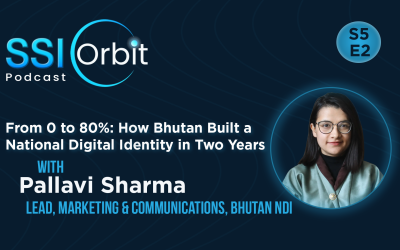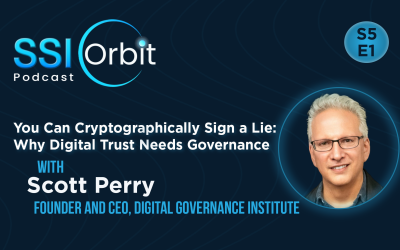WordPress database error: [Can't find file: './esblrgmy_northern_block_twoone/nb_aioseo_cache.MYI' (errno: 2 "No such file or directory")]
INSERT INTO nb_aioseo_cache
SET `key` = 'addons', `value` = '[{\"sku\":\"aioseo-redirects\",\"name\":\"Redirection Manager\",\"version\":\"1.4.15\",\"image\":null,\"icon\":\"PHN2ZyB2aWV3Qm94PSIwIDAgMjQgMjQiIGZpbGw9Im5vbmUiIHhtbG5zPSJodHRwOi8vd3d3LnczLm9yZy8yMDAwL3N2ZyIgY2xhc3M9ImFpb3Nlby1yZWRpcmVjdCI+PHBhdGggZmlsbC1ydWxlPSJldmVub2RkIiBjbGlwLXJ1bGU9ImV2ZW5vZGQiIGQ9Ik0xMC41OSA5LjE3TDUuNDEgNEw0IDUuNDFMOS4xNyAxMC41OEwxMC41OSA5LjE3Wk0xNC41IDRMMTYuNTQgNi4wNEw0IDE4LjU5TDUuNDEgMjBMMTcuOTYgNy40NkwyMCA5LjVWNEgxNC41Wk0xMy40MiAxNC44MkwxNC44MyAxMy40MUwxNy45NiAxNi41NEwyMCAxNC41VjIwSDE0LjVMMTYuNTUgMTcuOTVMMTMuNDIgMTQuODJaIiBmaWxsPSJjdXJyZW50Q29sb3IiIC8+PC9zdmc+\",\"levels\":[\"business\",\"agency\",\"pro\",\"elite\"],\"currentLevels\":[\"pro\",\"elite\"],\"requiresUpgrade\":true,\"description\":\"<p>Our Redirection Manager allows you to create and manage redirects for 404s or modified posts.<\\/p>\\n\",\"descriptionVersion\":0,\"downloadUrl\":\"\",\"productUrl\":\"https:\\/\\/aioseo.com\\/features\\/redirection-manager\\/\",\"learnMoreUrl\":\"https:\\/\\/aioseo.com\\/features\\/redirection-manager\\/\",\"manageUrl\":\"https:\\/\\/route#aioseo-redirects:redirects\",\"features\":[{\"license_level\":\"elite\",\"feature\":\"404-parent-redirect\"}]},{\"sku\":\"aioseo-link-assistant\",\"name\":\"Link Assistant\",\"version\":\"1.1.11\",\"image\":null,\"icon\":\"PHN2ZyB2aWV3Qm94PSIwIDAgMjQgMjQiIGZpbGw9Im5vbmUiIHhtbG5zPSJodHRwOi8vd3d3LnczLm9yZy8yMDAwL3N2ZyI+PHBhdGggZmlsbC1ydWxlPSJldmVub2RkIiBjbGlwLXJ1bGU9ImV2ZW5vZGQiIGQ9Ik0xMSAxNUg3QzUuMzUgMTUgNCAxMy42NSA0IDEyQzQgMTAuMzUgNS4zNSA5IDcgOUgxMVY3SDdDNC4yNCA3IDIgOS4yNCAyIDEyQzIgMTQuNzYgNC4yNCAxNyA3IDE3SDExVjE1Wk0xNyA3SDEzVjlIMTdDMTguNjUgOSAyMCAxMC4zNSAyMCAxMkMyMCAxMy42NSAxOC42NSAxNSAxNyAxNUgxM1YxN0gxN0MxOS43NiAxNyAyMiAxNC43NiAyMiAxMkMyMiA5LjI0IDE5Ljc2IDcgMTcgN1pNMTYgMTFIOFYxM0gxNlYxMVoiIGZpbGw9ImN1cnJlbnRDb2xvciIvPjwvc3ZnPgo=\",\"levels\":[\"agency\",\"pro\",\"elite\"],\"currentLevels\":[\"pro\",\"elite\"],\"requiresUpgrade\":true,\"description\":\"<p>Super-charge your SEO with Link Assistant! Get relevant suggestions for adding internal links to older content as well as finding any orphaned posts that have no internal links. Use our reporting feature to see all link suggestions or add them directly from any page or post.<\\/p>\\n\",\"descriptionVersion\":0,\"downloadUrl\":\"\",\"productUrl\":\"https:\\/\\/aioseo.com\\/docs\\/link-assistant\\/\",\"learnMoreUrl\":\"https:\\/\\/aioseo.com\\/docs\\/link-assistant\\/\",\"manageUrl\":\"https:\\/\\/route#aioseo-link-assistant:overview\",\"features\":[]},{\"sku\":\"aioseo-video-sitemap\",\"name\":\"Video Sitemap\",\"version\":\"1.1.24\",\"image\":null,\"icon\":\"PHN2ZyB4bWxucz0iaHR0cDovL3d3dy53My5vcmcvMjAwMC9zdmciIHZpZXdCb3g9IjAgMCAyMCAyMCI+PHBhdGggZmlsbC1ydWxlPSJldmVub2RkIiBkPSJNMy4zMzMgNWgxMGMuNDU5IDAgLjgzNC4zNzUuODM0LjgzM1Y4Ljc1TDE3LjUgNS40MTd2OS4xNjZsLTMuMzMzLTMuMzMzdjIuOTE3YS44MzYuODM2IDAgMCAxLS44MzQuODMzaC0xMGEuODM2LjgzNiAwIDAgMS0uODMzLS44MzNWNS44MzNjMC0uNDU4LjM3NS0uODMzLjgzMy0uODMzWm05LjE2NyA4LjMzM1Y2LjY2N0g0LjE2N3Y2LjY2NkgxMi41WiIgY2xpcC1ydWxlPSJldmVub2RkIi8+PC9zdmc+\",\"levels\":[\"individual\",\"business\",\"agency\",\"pro\",\"elite\"],\"currentLevels\":[\"pro\",\"elite\"],\"requiresUpgrade\":true,\"description\":\"<p>The Video Sitemap works in much the same way as the XML Sitemap module, it generates an XML Sitemap specifically for video content on your site. Search engines use this information to display rich snippet information in search results.<\\/p>\\n\",\"descriptionVersion\":0,\"downloadUrl\":\"\",\"productUrl\":\"https:\\/\\/aioseo.com\\/docs\\/how-to-create-a-video-sitemap\\/\",\"learnMoreUrl\":\"https:\\/\\/aioseo.com\\/docs\\/how-to-create-a-video-sitemap\\/\",\"manageUrl\":\"https:\\/\\/route#aioseo-sitemaps:video-sitemap\",\"features\":[]},{\"sku\":\"aioseo-local-business\",\"name\":\"Local Business SEO\",\"version\":\"1.3.12\",\"image\":null,\"icon\":\"svg-local-business\",\"levels\":[\"business\",\"agency\",\"plus\",\"pro\",\"elite\"],\"currentLevels\":[\"plus\",\"pro\",\"elite\"],\"requiresUpgrade\":true,\"description\":\"<p>Local Business schema markup enables you to tell Google about your business, including your business name, address and phone number, opening hours and price range. This information may be displayed as a Knowledge Graph card or business carousel.<\\/p>\\n\",\"descriptionVersion\":0,\"downloadUrl\":\"\",\"productUrl\":\"https:\\/\\/aioseo.com\\/docs\\/local-business-seo\\/\",\"learnMoreUrl\":\"https:\\/\\/aioseo.com\\/docs\\/local-business-seo\\/\",\"manageUrl\":\"https:\\/\\/route#aioseo-local-seo:locations\",\"features\":[]},{\"sku\":\"aioseo-news-sitemap\",\"name\":\"News Sitemap\",\"version\":\"1.0.20\",\"image\":null,\"icon\":\"svg-sitemaps-pro\",\"levels\":[\"business\",\"agency\",\"pro\",\"elite\"],\"currentLevels\":[\"pro\",\"elite\"],\"requiresUpgrade\":true,\"description\":\"<p>Our Google News Sitemap lets you control which content you submit to Google News and only contains articles that were published in the last 48 hours. In order to submit a News Sitemap to Google, you must have added your site to Google\\u2019s Publisher Center and had it approved.<\\/p>\\n\",\"descriptionVersion\":0,\"downloadUrl\":\"\",\"productUrl\":\"https:\\/\\/aioseo.com\\/docs\\/how-to-create-a-google-news-sitemap\\/\",\"learnMoreUrl\":\"https:\\/\\/aioseo.com\\/docs\\/how-to-create-a-google-news-sitemap\\/\",\"manageUrl\":\"https:\\/\\/route#aioseo-sitemaps:news-sitemap\",\"features\":[]},{\"sku\":\"aioseo-index-now\",\"name\":\"IndexNow\",\"version\":\"1.0.13\",\"image\":null,\"icon\":\"PHN2ZyB4bWxucz0iaHR0cDovL3d3dy53My5vcmcvMjAwMC9zdmciIHZpZXdCb3g9IjAgMCAyMCAyMCI+PHBhdGggZD0iTTE3LjY0NCAxMS42NTVjLS4zMjEtLjIyOS0uNjU0LS40NDYtLjk2NC0uNjk3LS42NDMtLjUzNC0uNjMxLTEuMzcyLjAyMy0xLjg4NC4zMS0uMjQuNjQyLS40NTguOTY0LS42OTcuMTg0LS4xMy4zMjEtLjI5NC4zMzMtLjUzNCAwLS4wMzIgMC0uMDc2LS4wMTItLjEyYTcuNDQyIDcuNDQyIDAgMCAwLTEuODkzLTMuMTQ3Yy0uMjA3LS4yMDctLjQ2LS4yNC0uNzQ2LS4xMmEyMi4wNSAyMi4wNSAwIDAgMS0xLjA2OC40MzZjLS45MTguMzQ4LTEuNjg3LS4wODctMS44MTMtMS4wMjQtLjA0Ni0uMzM4LS4wOC0uNjc1LS4xMTUtMS4wMTMtLjAzNC0uMzctLjI0LS41OTktLjYzLS42NzVhOC40NDYgOC40NDYgMCAwIDAtMy40NjcgMGMtLjM2Ny4wNzYtLjU3NC4yNzItLjYwOC42MzJhMTMuNzggMTMuNzggMCAwIDEtLjE2IDEuMTc2Yy0uMTYxLjgyOC0uOTE5IDEuMjMtMS43NDUuOTE1LS4zNTYtLjEzLS43MTItLjI5NC0xLjA2Ny0uNDQ3LS4zMzMtLjE0MS0uNjA5LS4wODctLjg1LjE2NGE3Ljc3OSA3Ljc3OSAwIDAgMC0xLjc3OSAyLjkxOGMtLjExNC4zMzgtLjAyMy42MS4yODcuODI4LjI5OS4yMDcuNjA5LjQxNC44OTUuNjMyLjc3LjU4OC43NTggMS40NDgtLjAyMiAyLjAxNC0uMjg3LjIwNy0uNTc0LjQxNC0uODYxLjYxLS4zMjIuMjE4LS40MTMuNTEyLS4yOTkuODZhNy44NyA3Ljg3IDAgMCAwIDEuNzQ1IDIuODg3Yy4yNC4yNS41MTYuMzE2Ljg1LjE4NS4zOS0uMTUzLjc2OC0uMzI3IDEuMTU4LS40NjguNzU4LS4yNzMgMS41MTUuMTIgMS42NzYuODcuMDguNDA0LjEyNi44MTguMTYgMS4yMi4wMzUuMzcuMjQxLjU2Ny41OTcuNjQzIDEuMTYuMjQgMi4zMDcuMjQgMy40NjYuMDExLjQxMy0uMDg3LjYwOC0uMzE2LjY0My0uNzA4LjAyMy0uMzI3LjA2OS0uNjUzLjEwMy0uOTcuMTE1LS45MjUuODk1LTEuMzgyIDEuODE0LTEuMDQ1LjM0NC4xMzEuNjg4LjI3MyAxLjAzMi40MjUuMzY4LjE1My42NjYuMDc2LjkxOC0uMjA3YTguNDk0IDguNDk0IDAgMCAwIDEuNzEtMi44MmMuMTUtLjMzOC4wNTgtLjYyMS0uMjc1LS44NXptLTkuNDguNjk3Yy0uMTAzLjEzLS4zMS4xMi0uNDEzLS4wMUw2LjAzIDEwLjE3M2EuMjIuMjIgMCAwIDEgMC0uMjgzbDEuOTI4LTIuNDI5IDEuNDY5IDEuNzItLjYzMS44NS41MjcuNzA4YS4yMDUuMjA1IDAgMCAxLS4wMTEuMjYyem01LjgzLTIuMTc4LTIuNDc5IDMuMDE3YS4yNi4yNiAwIDAgMS0uMjA2LjEwOUg5LjEwNWEuMjUuMjUgMCAwIDEtLjIwNi0uNDAzbDIuMzUzLTIuODY1LTIuNjc0LTMuMjY3aDIuODY5bDIuNTU5IDMuMTI2YS4yMzYuMjM2IDAgMCAxLS4wMTEuMjgzeiIvPjwvc3ZnPg==\",\"levels\":[\"business\",\"agency\",\"basic\",\"plus\",\"pro\",\"elite\"],\"currentLevels\":[\"basic\",\"plus\",\"pro\",\"elite\"],\"requiresUpgrade\":true,\"description\":\"<p>Add IndexNow support to instantly notify search engines when your content has changed. This helps the search engines to prioritize the changes on your website and helps you rank faster.<\\/p>\\n\",\"descriptionVersion\":0,\"downloadUrl\":\"\",\"productUrl\":\"https:\\/\\/aioseo.com\\/index-now\",\"learnMoreUrl\":\"https:\\/\\/aioseo.com\\/index-now\",\"manageUrl\":\"https:\\/\\/route#aioseo-settings:webmaster-tools\",\"features\":[]},{\"sku\":\"aioseo-rest-api\",\"name\":\"REST API\",\"version\":\"1.0.9\",\"image\":null,\"icon\":\"PHN2ZyB4bWxucz0iaHR0cDovL3d3dy53My5vcmcvMjAwMC9zdmciIHZpZXdCb3g9IjAgMCAyNCAyNCIgY2xhc3M9ImFpb3Nlby1jb2RlIj48cGF0aCBkPSJNOS40IDE2LjZMNC44IDEybDQuNi00LjZMOCA2bC02IDYgNiA2IDEuNC0xLjR6bTUuMiAwbDQuNi00LjYtNC42LTQuNkwxNiA2bDYgNi02IDYtMS40LTEuNHoiIGZpbGw9ImN1cnJlbnRDb2xvciIvPjwvc3ZnPg==\",\"levels\":[\"plus\",\"pro\",\"elite\"],\"currentLevels\":[\"plus\",\"pro\",\"elite\"],\"requiresUpgrade\":true,\"description\":\"<p>Manage your post and term SEO meta via the WordPress REST API. This addon also works seamlessly with headless WordPress installs.<\\/p>\\n\",\"descriptionVersion\":0,\"downloadUrl\":\"\",\"productUrl\":\"https:\\/\\/aioseo.com\\/feature\\/rest-api\\/\",\"learnMoreUrl\":\"https:\\/\\/aioseo.com\\/feature\\/rest-api\\/\",\"manageUrl\":\"\",\"features\":[]},{\"sku\":\"aioseo-image-seo\",\"name\":\"Image SEO\",\"version\":\"1.2.1\",\"image\":null,\"icon\":\"PHN2ZyB4bWxucz0iaHR0cDovL3d3dy53My5vcmcvMjAwMC9zdmciIHZpZXdCb3g9IjAgMCAyMCAyMCI+PHBhdGggZD0iTTE1LjgzMyA0LjE2N3YxMS42NjZINC4xNjdWNC4xNjdoMTEuNjY2Wm0wLTEuNjY3SDQuMTY3QzMuMjUgMi41IDIuNSAzLjI1IDIuNSA0LjE2N3YxMS42NjZjMCAuOTE3Ljc1IDEuNjY3IDEuNjY3IDEuNjY3aDExLjY2NmMuOTE3IDAgMS42NjctLjc1IDEuNjY3LTEuNjY3VjQuMTY3YzAtLjkxNy0uNzUtMS42NjctMS42NjctMS42NjdabS00LjA1IDcuMzgzLTIuNSAzLjIyNUw3LjUgMTAuOTUgNSAxNC4xNjdoMTBsLTMuMjE3LTQuMjg0WiIvPjwvc3ZnPg==\",\"levels\":[\"business\",\"agency\",\"plus\",\"pro\",\"elite\"],\"currentLevels\":[\"plus\",\"pro\",\"elite\"],\"requiresUpgrade\":true,\"description\":\"<p>Globally control the Title, Alt Text, Caption and Descriptions for images in your content. These attributes are essential for both accessibility and SEO.<\\/p>\\n\",\"descriptionVersion\":0,\"downloadUrl\":\"\",\"productUrl\":\"https:\\/\\/aioseo.com\\/docs\\/using-the-image-seo-features-in-all-in-one-seo\\/\",\"learnMoreUrl\":\"https:\\/\\/aioseo.com\\/docs\\/using-the-image-seo-features-in-all-in-one-seo\\/\",\"manageUrl\":\"https:\\/\\/route#aioseo-search-appearance:media\",\"features\":[]},{\"sku\":\"aioseo-eeat\",\"name\":\"Author SEO (E-E-A-T)\",\"version\":\"1.2.9\",\"image\":null,\"icon\":\"PHN2ZyB4bWxucz0iaHR0cDovL3d3dy53My5vcmcvMjAwMC9zdmciIGhlaWdodD0iMjQiIHZpZXdCb3g9IjAgLTk2MCA5NjAgOTYwIiB3aWR0aD0iMjQiPjxwYXRoIGQ9Ik00NDAuMTE4LTU2MHEzMy44MzkgMCA1Ny44MTctMjQuMDk3dDIzLjk3OC01Ny45MzVxMC0zMy44MzgtMjMuOTc4LTU3LjY5Ni0yMy45NzgtMjMuODU5LTU3LjgxNy0yMy44NTktMzMuODM4IDAtNTcuOTM0IDIzLjg1OS0yNC4wOTcgMjMuODU4LTI0LjA5NyA1Ny42OTYgMCAzMy44MzggMjQuMDk3IDU3LjkzNVE0MDYuMjgtNTYwIDQ0MC4xMTgtNTYwWk00NDAtMzk2LjQxM3E0NS43MTcgMCA4NS41NzYtMTkuNDc4IDM5Ljg1OS0xOS40NzkgNjkuNTc2LTU2LjE1Mi0zNS45NTYtMjMuNzE4LTc0LjkzNS0zNS44MzdRNDgxLjIzOS01MjAgNDQwLTUyMHQtODAuMjE3IDEyLjEycS0zOC45NzkgMTIuMTE5LTc0LjkzNSAzNS44MzcgMjkuNzE3IDM2LjY3MyA2OS41NzYgNTYuMTUyIDM5Ljg1OSAxOS40NzggODUuNTc2IDE5LjQ3OFptMzg2LjM5MSAyODYuOTM1TDYzNy45MTMtMjk3Ljk1NnEtNDEuNzE3IDMxLjc2MS05MS42OTYgNDkuNDAyUTQ5Ni4yMzktMjMwLjkxMyA0NDAtMjMwLjkxM3EtMTM3LjU4NyAwLTIzMy4zMzctOTUuNzVUMTEwLjkxMy01NjBxMC0xMzcuNTg3IDk1Ljc1LTIzMy4zMzdUNDQwLTg4OS4wODdxMTM3LjU4NyAwIDIzMy4zMzcgOTUuNzVUNzY5LjA4Ny01NjBxMCA1NS43NjEtMTcuNzYxIDEwNS45NzgtMTcuNzYxIDUwLjIxOC00OS41MjEgOTIuMTc0TDg5MC4yODMtMTczLjM3bC02My44OTIgNjMuODkyWk00NDAuMTEzLTMyMS45MTNxOTkuMTU2IDAgMTY4LjU2NS02OS41MjIgNjkuNDA5LTY5LjUyMiA2OS40MDktMTY4LjY3OCAwLTk5LjE1Ni02OS40MDktMTY4LjU2NS02OS40MDktNjkuNDA5LTE2OC41NjUtNjkuNDA5LTk5LjE1NiAwLTE2OC42NzggNjkuNDA5LTY5LjUyMiA2OS40MDktNjkuNTIyIDE2OC41NjUgMCA5OS4xNTYgNjkuNTIyIDE2OC42NzggNjkuNTIyIDY5LjUyMiAxNjguNjc4IDY5LjUyMlpNNDQwLTU2MFoiLz48L3N2Zz4=\",\"levels\":[\"plus\",\"pro\",\"elite\"],\"currentLevels\":[\"plus\",\"pro\",\"elite\"],\"requiresUpgrade\":true,\"description\":\"<p>Optimize your site for Google\'s E-E-A-T ranking factor by proving your writer\'s expertise through author schema markup and new UI elements.<\\/p>\\n\",\"descriptionVersion\":0,\"downloadUrl\":\"\",\"productUrl\":\"https:\\/\\/aioseo.com\\/features\\/eeat\\/\",\"learnMoreUrl\":\"https:\\/\\/aioseo.com\\/features\\/eeat\\/\",\"manageUrl\":\"https:\\/\\/route#aioseo-search-appearance:author-seo\",\"features\":[]}]', `is_object` = '', `expiration` = '2026-01-06 10:02:01', `created` = '2026-01-05 10:02:01', `updated` = '2026-01-05 10:02:01'
ON DUPLICATE KEY UPDATE `value` = '[{\"sku\":\"aioseo-redirects\",\"name\":\"Redirection Manager\",\"version\":\"1.4.15\",\"image\":null,\"icon\":\"PHN2ZyB2aWV3Qm94PSIwIDAgMjQgMjQiIGZpbGw9Im5vbmUiIHhtbG5zPSJodHRwOi8vd3d3LnczLm9yZy8yMDAwL3N2ZyIgY2xhc3M9ImFpb3Nlby1yZWRpcmVjdCI+PHBhdGggZmlsbC1ydWxlPSJldmVub2RkIiBjbGlwLXJ1bGU9ImV2ZW5vZGQiIGQ9Ik0xMC41OSA5LjE3TDUuNDEgNEw0IDUuNDFMOS4xNyAxMC41OEwxMC41OSA5LjE3Wk0xNC41IDRMMTYuNTQgNi4wNEw0IDE4LjU5TDUuNDEgMjBMMTcuOTYgNy40NkwyMCA5LjVWNEgxNC41Wk0xMy40MiAxNC44MkwxNC44MyAxMy40MUwxNy45NiAxNi41NEwyMCAxNC41VjIwSDE0LjVMMTYuNTUgMTcuOTVMMTMuNDIgMTQuODJaIiBmaWxsPSJjdXJyZW50Q29sb3IiIC8+PC9zdmc+\",\"levels\":[\"business\",\"agency\",\"pro\",\"elite\"],\"currentLevels\":[\"pro\",\"elite\"],\"requiresUpgrade\":true,\"description\":\"<p>Our Redirection Manager allows you to create and manage redirects for 404s or modified posts.<\\/p>\\n\",\"descriptionVersion\":0,\"downloadUrl\":\"\",\"productUrl\":\"https:\\/\\/aioseo.com\\/features\\/redirection-manager\\/\",\"learnMoreUrl\":\"https:\\/\\/aioseo.com\\/features\\/redirection-manager\\/\",\"manageUrl\":\"https:\\/\\/route#aioseo-redirects:redirects\",\"features\":[{\"license_level\":\"elite\",\"feature\":\"404-parent-redirect\"}]},{\"sku\":\"aioseo-link-assistant\",\"name\":\"Link Assistant\",\"version\":\"1.1.11\",\"image\":null,\"icon\":\"PHN2ZyB2aWV3Qm94PSIwIDAgMjQgMjQiIGZpbGw9Im5vbmUiIHhtbG5zPSJodHRwOi8vd3d3LnczLm9yZy8yMDAwL3N2ZyI+PHBhdGggZmlsbC1ydWxlPSJldmVub2RkIiBjbGlwLXJ1bGU9ImV2ZW5vZGQiIGQ9Ik0xMSAxNUg3QzUuMzUgMTUgNCAxMy42NSA0IDEyQzQgMTAuMzUgNS4zNSA5IDcgOUgxMVY3SDdDNC4yNCA3IDIgOS4yNCAyIDEyQzIgMTQuNzYgNC4yNCAxNyA3IDE3SDExVjE1Wk0xNyA3SDEzVjlIMTdDMTguNjUgOSAyMCAxMC4zNSAyMCAxMkMyMCAxMy42NSAxOC42NSAxNSAxNyAxNUgxM1YxN0gxN0MxOS43NiAxNyAyMiAxNC43NiAyMiAxMkMyMiA5LjI0IDE5Ljc2IDcgMTcgN1pNMTYgMTFIOFYxM0gxNlYxMVoiIGZpbGw9ImN1cnJlbnRDb2xvciIvPjwvc3ZnPgo=\",\"levels\":[\"agency\",\"pro\",\"elite\"],\"currentLevels\":[\"pro\",\"elite\"],\"requiresUpgrade\":true,\"description\":\"<p>Super-charge your SEO with Link Assistant! Get relevant suggestions for adding internal links to older content as well as finding any orphaned posts that have no internal links. Use our reporting feature to see all link suggestions or add them directly from any page or post.<\\/p>\\n\",\"descriptionVersion\":0,\"downloadUrl\":\"\",\"productUrl\":\"https:\\/\\/aioseo.com\\/docs\\/link-assistant\\/\",\"learnMoreUrl\":\"https:\\/\\/aioseo.com\\/docs\\/link-assistant\\/\",\"manageUrl\":\"https:\\/\\/route#aioseo-link-assistant:overview\",\"features\":[]},{\"sku\":\"aioseo-video-sitemap\",\"name\":\"Video Sitemap\",\"version\":\"1.1.24\",\"image\":null,\"icon\":\"PHN2ZyB4bWxucz0iaHR0cDovL3d3dy53My5vcmcvMjAwMC9zdmciIHZpZXdCb3g9IjAgMCAyMCAyMCI+PHBhdGggZmlsbC1ydWxlPSJldmVub2RkIiBkPSJNMy4zMzMgNWgxMGMuNDU5IDAgLjgzNC4zNzUuODM0LjgzM1Y4Ljc1TDE3LjUgNS40MTd2OS4xNjZsLTMuMzMzLTMuMzMzdjIuOTE3YS44MzYuODM2IDAgMCAxLS44MzQuODMzaC0xMGEuODM2LjgzNiAwIDAgMS0uODMzLS44MzNWNS44MzNjMC0uNDU4LjM3NS0uODMzLjgzMy0uODMzWm05LjE2NyA4LjMzM1Y2LjY2N0g0LjE2N3Y2LjY2NkgxMi41WiIgY2xpcC1ydWxlPSJldmVub2RkIi8+PC9zdmc+\",\"levels\":[\"individual\",\"business\",\"agency\",\"pro\",\"elite\"],\"currentLevels\":[\"pro\",\"elite\"],\"requiresUpgrade\":true,\"description\":\"<p>The Video Sitemap works in much the same way as the XML Sitemap module, it generates an XML Sitemap specifically for video content on your site. Search engines use this information to display rich snippet information in search results.<\\/p>\\n\",\"descriptionVersion\":0,\"downloadUrl\":\"\",\"productUrl\":\"https:\\/\\/aioseo.com\\/docs\\/how-to-create-a-video-sitemap\\/\",\"learnMoreUrl\":\"https:\\/\\/aioseo.com\\/docs\\/how-to-create-a-video-sitemap\\/\",\"manageUrl\":\"https:\\/\\/route#aioseo-sitemaps:video-sitemap\",\"features\":[]},{\"sku\":\"aioseo-local-business\",\"name\":\"Local Business SEO\",\"version\":\"1.3.12\",\"image\":null,\"icon\":\"svg-local-business\",\"levels\":[\"business\",\"agency\",\"plus\",\"pro\",\"elite\"],\"currentLevels\":[\"plus\",\"pro\",\"elite\"],\"requiresUpgrade\":true,\"description\":\"<p>Local Business schema markup enables you to tell Google about your business, including your business name, address and phone number, opening hours and price range. This information may be displayed as a Knowledge Graph card or business carousel.<\\/p>\\n\",\"descriptionVersion\":0,\"downloadUrl\":\"\",\"productUrl\":\"https:\\/\\/aioseo.com\\/docs\\/local-business-seo\\/\",\"learnMoreUrl\":\"https:\\/\\/aioseo.com\\/docs\\/local-business-seo\\/\",\"manageUrl\":\"https:\\/\\/route#aioseo-local-seo:locations\",\"features\":[]},{\"sku\":\"aioseo-news-sitemap\",\"name\":\"News Sitemap\",\"version\":\"1.0.20\",\"image\":null,\"icon\":\"svg-sitemaps-pro\",\"levels\":[\"business\",\"agency\",\"pro\",\"elite\"],\"currentLevels\":[\"pro\",\"elite\"],\"requiresUpgrade\":true,\"description\":\"<p>Our Google News Sitemap lets you control which content you submit to Google News and only contains articles that were published in the last 48 hours. In order to submit a News Sitemap to Google, you must have added your site to Google\\u2019s Publisher Center and had it approved.<\\/p>\\n\",\"descriptionVersion\":0,\"downloadUrl\":\"\",\"productUrl\":\"https:\\/\\/aioseo.com\\/docs\\/how-to-create-a-google-news-sitemap\\/\",\"learnMoreUrl\":\"https:\\/\\/aioseo.com\\/docs\\/how-to-create-a-google-news-sitemap\\/\",\"manageUrl\":\"https:\\/\\/route#aioseo-sitemaps:news-sitemap\",\"features\":[]},{\"sku\":\"aioseo-index-now\",\"name\":\"IndexNow\",\"version\":\"1.0.13\",\"image\":null,\"icon\":\"PHN2ZyB4bWxucz0iaHR0cDovL3d3dy53My5vcmcvMjAwMC9zdmciIHZpZXdCb3g9IjAgMCAyMCAyMCI+PHBhdGggZD0iTTE3LjY0NCAxMS42NTVjLS4zMjEtLjIyOS0uNjU0LS40NDYtLjk2NC0uNjk3LS42NDMtLjUzNC0uNjMxLTEuMzcyLjAyMy0xLjg4NC4zMS0uMjQuNjQyLS40NTguOTY0LS42OTcuMTg0LS4xMy4zMjEtLjI5NC4zMzMtLjUzNCAwLS4wMzIgMC0uMDc2LS4wMTItLjEyYTcuNDQyIDcuNDQyIDAgMCAwLTEuODkzLTMuMTQ3Yy0uMjA3LS4yMDctLjQ2LS4yNC0uNzQ2LS4xMmEyMi4wNSAyMi4wNSAwIDAgMS0xLjA2OC40MzZjLS45MTguMzQ4LTEuNjg3LS4wODctMS44MTMtMS4wMjQtLjA0Ni0uMzM4LS4wOC0uNjc1LS4xMTUtMS4wMTMtLjAzNC0uMzctLjI0LS41OTktLjYzLS42NzVhOC40NDYgOC40NDYgMCAwIDAtMy40NjcgMGMtLjM2Ny4wNzYtLjU3NC4yNzItLjYwOC42MzJhMTMuNzggMTMuNzggMCAwIDEtLjE2IDEuMTc2Yy0uMTYxLjgyOC0uOTE5IDEuMjMtMS43NDUuOTE1LS4zNTYtLjEzLS43MTItLjI5NC0xLjA2Ny0uNDQ3LS4zMzMtLjE0MS0uNjA5LS4wODctLjg1LjE2NGE3Ljc3OSA3Ljc3OSAwIDAgMC0xLjc3OSAyLjkxOGMtLjExNC4zMzgtLjAyMy42MS4yODcuODI4LjI5OS4yMDcuNjA5LjQxNC44OTUuNjMyLjc3LjU4OC43NTggMS40NDgtLjAyMiAyLjAxNC0uMjg3LjIwNy0uNTc0LjQxNC0uODYxLjYxLS4zMjIuMjE4LS40MTMuNTEyLS4yOTkuODZhNy44NyA3Ljg3IDAgMCAwIDEuNzQ1IDIuODg3Yy4yNC4yNS41MTYuMzE2Ljg1LjE4NS4zOS0uMTUzLjc2OC0uMzI3IDEuMTU4LS40NjguNzU4LS4yNzMgMS41MTUuMTIgMS42NzYuODcuMDguNDA0LjEyNi44MTguMTYgMS4yMi4wMzUuMzcuMjQxLjU2Ny41OTcuNjQzIDEuMTYuMjQgMi4zMDcuMjQgMy40NjYuMDExLjQxMy0uMDg3LjYwOC0uMzE2LjY0My0uNzA4LjAyMy0uMzI3LjA2OS0uNjUzLjEwMy0uOTcuMTE1LS45MjUuODk1LTEuMzgyIDEuODE0LTEuMDQ1LjM0NC4xMzEuNjg4LjI3MyAxLjAzMi40MjUuMzY4LjE1My42NjYuMDc2LjkxOC0uMjA3YTguNDk0IDguNDk0IDAgMCAwIDEuNzEtMi44MmMuMTUtLjMzOC4wNTgtLjYyMS0uMjc1LS44NXptLTkuNDguNjk3Yy0uMTAzLjEzLS4zMS4xMi0uNDEzLS4wMUw2LjAzIDEwLjE3M2EuMjIuMjIgMCAwIDEgMC0uMjgzbDEuOTI4LTIuNDI5IDEuNDY5IDEuNzItLjYzMS44NS41MjcuNzA4YS4yMDUuMjA1IDAgMCAxLS4wMTEuMjYyem01LjgzLTIuMTc4LTIuNDc5IDMuMDE3YS4yNi4yNiAwIDAgMS0uMjA2LjEwOUg5LjEwNWEuMjUuMjUgMCAwIDEtLjIwNi0uNDAzbDIuMzUzLTIuODY1LTIuNjc0LTMuMjY3aDIuODY5bDIuNTU5IDMuMTI2YS4yMzYuMjM2IDAgMCAxLS4wMTEuMjgzeiIvPjwvc3ZnPg==\",\"levels\":[\"business\",\"agency\",\"basic\",\"plus\",\"pro\",\"elite\"],\"currentLevels\":[\"basic\",\"plus\",\"pro\",\"elite\"],\"requiresUpgrade\":true,\"description\":\"<p>Add IndexNow support to instantly notify search engines when your content has changed. This helps the search engines to prioritize the changes on your website and helps you rank faster.<\\/p>\\n\",\"descriptionVersion\":0,\"downloadUrl\":\"\",\"productUrl\":\"https:\\/\\/aioseo.com\\/index-now\",\"learnMoreUrl\":\"https:\\/\\/aioseo.com\\/index-now\",\"manageUrl\":\"https:\\/\\/route#aioseo-settings:webmaster-tools\",\"features\":[]},{\"sku\":\"aioseo-rest-api\",\"name\":\"REST API\",\"version\":\"1.0.9\",\"image\":null,\"icon\":\"PHN2ZyB4bWxucz0iaHR0cDovL3d3dy53My5vcmcvMjAwMC9zdmciIHZpZXdCb3g9IjAgMCAyNCAyNCIgY2xhc3M9ImFpb3Nlby1jb2RlIj48cGF0aCBkPSJNOS40IDE2LjZMNC44IDEybDQuNi00LjZMOCA2bC02IDYgNiA2IDEuNC0xLjR6bTUuMiAwbDQuNi00LjYtNC42LTQuNkwxNiA2bDYgNi02IDYtMS40LTEuNHoiIGZpbGw9ImN1cnJlbnRDb2xvciIvPjwvc3ZnPg==\",\"levels\":[\"plus\",\"pro\",\"elite\"],\"currentLevels\":[\"plus\",\"pro\",\"elite\"],\"requiresUpgrade\":true,\"description\":\"<p>Manage your post and term SEO meta via the WordPress REST API. This addon also works seamlessly with headless WordPress installs.<\\/p>\\n\",\"descriptionVersion\":0,\"downloadUrl\":\"\",\"productUrl\":\"https:\\/\\/aioseo.com\\/feature\\/rest-api\\/\",\"learnMoreUrl\":\"https:\\/\\/aioseo.com\\/feature\\/rest-api\\/\",\"manageUrl\":\"\",\"features\":[]},{\"sku\":\"aioseo-image-seo\",\"name\":\"Image SEO\",\"version\":\"1.2.1\",\"image\":null,\"icon\":\"PHN2ZyB4bWxucz0iaHR0cDovL3d3dy53My5vcmcvMjAwMC9zdmciIHZpZXdCb3g9IjAgMCAyMCAyMCI+PHBhdGggZD0iTTE1LjgzMyA0LjE2N3YxMS42NjZINC4xNjdWNC4xNjdoMTEuNjY2Wm0wLTEuNjY3SDQuMTY3QzMuMjUgMi41IDIuNSAzLjI1IDIuNSA0LjE2N3YxMS42NjZjMCAuOTE3Ljc1IDEuNjY3IDEuNjY3IDEuNjY3aDExLjY2NmMuOTE3IDAgMS42NjctLjc1IDEuNjY3LTEuNjY3VjQuMTY3YzAtLjkxNy0uNzUtMS42NjctMS42NjctMS42NjdabS00LjA1IDcuMzgzLTIuNSAzLjIyNUw3LjUgMTAuOTUgNSAxNC4xNjdoMTBsLTMuMjE3LTQuMjg0WiIvPjwvc3ZnPg==\",\"levels\":[\"business\",\"agency\",\"plus\",\"pro\",\"elite\"],\"currentLevels\":[\"plus\",\"pro\",\"elite\"],\"requiresUpgrade\":true,\"description\":\"<p>Globally control the Title, Alt Text, Caption and Descriptions for images in your content. These attributes are essential for both accessibility and SEO.<\\/p>\\n\",\"descriptionVersion\":0,\"downloadUrl\":\"\",\"productUrl\":\"https:\\/\\/aioseo.com\\/docs\\/using-the-image-seo-features-in-all-in-one-seo\\/\",\"learnMoreUrl\":\"https:\\/\\/aioseo.com\\/docs\\/using-the-image-seo-features-in-all-in-one-seo\\/\",\"manageUrl\":\"https:\\/\\/route#aioseo-search-appearance:media\",\"features\":[]},{\"sku\":\"aioseo-eeat\",\"name\":\"Author SEO (E-E-A-T)\",\"version\":\"1.2.9\",\"image\":null,\"icon\":\"PHN2ZyB4bWxucz0iaHR0cDovL3d3dy53My5vcmcvMjAwMC9zdmciIGhlaWdodD0iMjQiIHZpZXdCb3g9IjAgLTk2MCA5NjAgOTYwIiB3aWR0aD0iMjQiPjxwYXRoIGQ9Ik00NDAuMTE4LTU2MHEzMy44MzkgMCA1Ny44MTctMjQuMDk3dDIzLjk3OC01Ny45MzVxMC0zMy44MzgtMjMuOTc4LTU3LjY5Ni0yMy45NzgtMjMuODU5LTU3LjgxNy0yMy44NTktMzMuODM4IDAtNTcuOTM0IDIzLjg1OS0yNC4wOTcgMjMuODU4LTI0LjA5NyA1Ny42OTYgMCAzMy44MzggMjQuMDk3IDU3LjkzNVE0MDYuMjgtNTYwIDQ0MC4xMTgtNTYwWk00NDAtMzk2LjQxM3E0NS43MTcgMCA4NS41NzYtMTkuNDc4IDM5Ljg1OS0xOS40NzkgNjkuNTc2LTU2LjE1Mi0zNS45NTYtMjMuNzE4LTc0LjkzNS0zNS44MzdRNDgxLjIzOS01MjAgNDQwLTUyMHQtODAuMjE3IDEyLjEycS0zOC45NzkgMTIuMTE5LTc0LjkzNSAzNS44MzcgMjkuNzE3IDM2LjY3MyA2OS41NzYgNTYuMTUyIDM5Ljg1OSAxOS40NzggODUuNTc2IDE5LjQ3OFptMzg2LjM5MSAyODYuOTM1TDYzNy45MTMtMjk3Ljk1NnEtNDEuNzE3IDMxLjc2MS05MS42OTYgNDkuNDAyUTQ5Ni4yMzktMjMwLjkxMyA0NDAtMjMwLjkxM3EtMTM3LjU4NyAwLTIzMy4zMzctOTUuNzVUMTEwLjkxMy01NjBxMC0xMzcuNTg3IDk1Ljc1LTIzMy4zMzdUNDQwLTg4OS4wODdxMTM3LjU4NyAwIDIzMy4zMzcgOTUuNzVUNzY5LjA4Ny01NjBxMCA1NS43NjEtMTcuNzYxIDEwNS45NzgtMTcuNzYxIDUwLjIxOC00OS41MjEgOTIuMTc0TDg5MC4yODMtMTczLjM3bC02My44OTIgNjMuODkyWk00NDAuMTEzLTMyMS45MTNxOTkuMTU2IDAgMTY4LjU2NS02OS41MjIgNjkuNDA5LTY5LjUyMiA2OS40MDktMTY4LjY3OCAwLTk5LjE1Ni02OS40MDktMTY4LjU2NS02OS40MDktNjkuNDA5LTE2OC41NjUtNjkuNDA5LTk5LjE1NiAwLTE2OC42NzggNjkuNDA5LTY5LjUyMiA2OS40MDktNjkuNTIyIDE2OC41NjUgMCA5OS4xNTYgNjkuNTIyIDE2OC42NzggNjkuNTIyIDY5LjUyMiAxNjguNjc4IDY5LjUyMlpNNDQwLTU2MFoiLz48L3N2Zz4=\",\"levels\":[\"plus\",\"pro\",\"elite\"],\"currentLevels\":[\"plus\",\"pro\",\"elite\"],\"requiresUpgrade\":true,\"description\":\"<p>Optimize your site for Google\'s E-E-A-T ranking factor by proving your writer\'s expertise through author schema markup and new UI elements.<\\/p>\\n\",\"descriptionVersion\":0,\"downloadUrl\":\"\",\"productUrl\":\"https:\\/\\/aioseo.com\\/features\\/eeat\\/\",\"learnMoreUrl\":\"https:\\/\\/aioseo.com\\/features\\/eeat\\/\",\"manageUrl\":\"https:\\/\\/route#aioseo-search-appearance:author-seo\",\"features\":[]}]', `is_object` = '', `expiration` = '2026-01-06 10:02:01', `updated` = '2026-01-05 10:02:01'
/* 1 = 1 */








